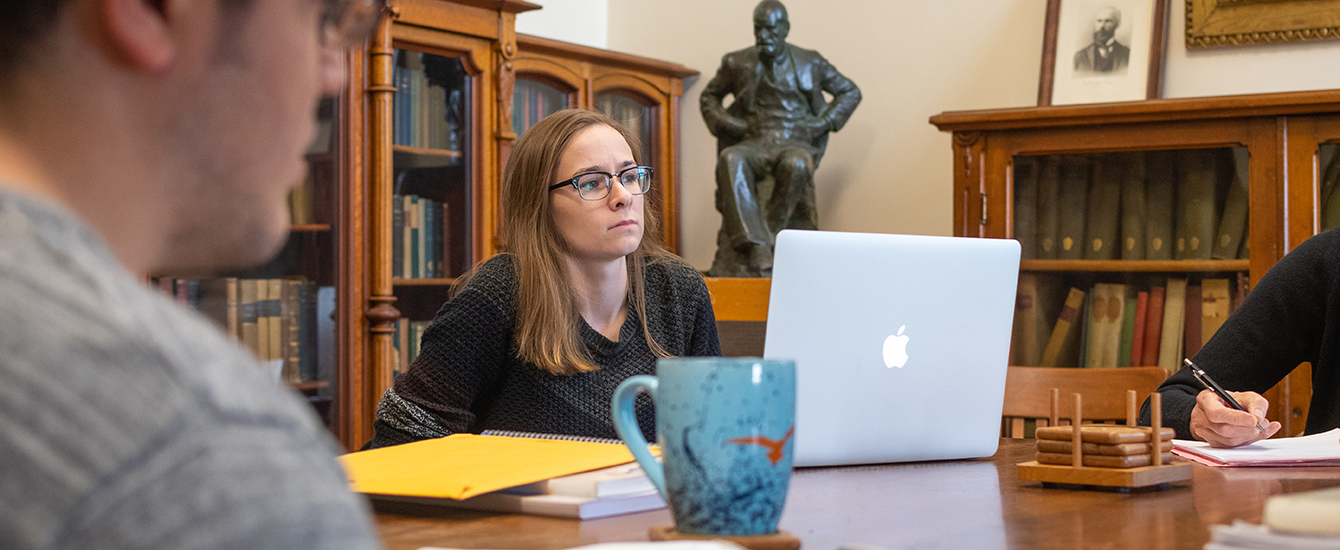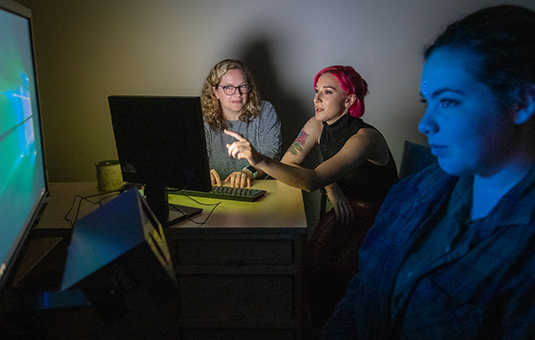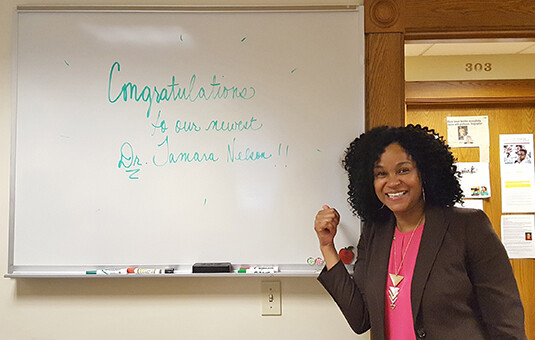Why apply to Clark’s clinical psychology doctoral program?
Clark University’s APA-accredited clinical psychology doctoral program at the Frances L. Hiatt School of Psychology is nationally renowned for its distinguished history and commitment to training socially engaged clinical scholars. The clinical psychology program adheres to the scientist-practitioner model and so emphasizes high-quality research while also providing closely supervised and broad-based clinical training.
Our goal is to train graduate students to be skilled scientists and clinicians who integrate the science of psychology with its professional practice to improve the quality of the world in which we live and the lives of the people in our communities.
We work to help students create a program tailored to their interests while working closely with their mentor and department faculty. We have a strong commitment to diversity, inclusion and the culturally competent practice of psychology, and we pride ourselves on pursuing scholarship that is diverse both in theory and method.
Our Community
The clinical psychology program seeks independent-minded students who are able, through initiative and intellectual curiosity, to develop and advance their own research interests among our dedicated, collaborative community. Many different methodological approaches are represented and it’s common for graduate students across the three specializations represented in our department (social, developmental , and clinical) to share ideas in the classroom, research groups, and laboratories. Our department is collaborative by design and intentionally structures classes, practicum experiences, and research activities to support collaboration among peers, rather than competition. The clinical program is committed to the inclusion of marginalized populations and to enhancing diversity within the field of clinical psychology as a whole. As such, we create a respectful, supportive learning environment.
Our Research in Clinical Psychology
Clark’s setting as a small, urban research university provides a wealth of opportunities to grow as an independent researcher. Using a variety of quantitative and qualitative methods, our clinical psychology graduate program ensures students receive extensive research training that builds cumulatively from foundational and more heavily mentored experiences to more independent activities, including building a research portfolio and completing an independent dissertation study.
As teaching assistants and through lab work, graduate students collaborate with faculty, their cohorts, and undergraduates while managing and mentoring teams. Indeed, much research takes place with and among our partners in the greater Worcester community. Graduate students present their work at external conferences and at Clark’s Graduate Student Multidisciplinary Conference, and publish in leading journals like Journal of Consulting and Clinical Psychology, Professional Psychology: Research and Practice, Child Development, the Journal of Early Adolescence, the Journal of Marriage and Family, the Psychology of Sexual Orientation and Gender Diversity, and Cultural Diversity and Ethnic Minority Psychology.
The small size of our program allows students to build close mentored relationships with their faculty advisers who are recognized experts in their fields.



